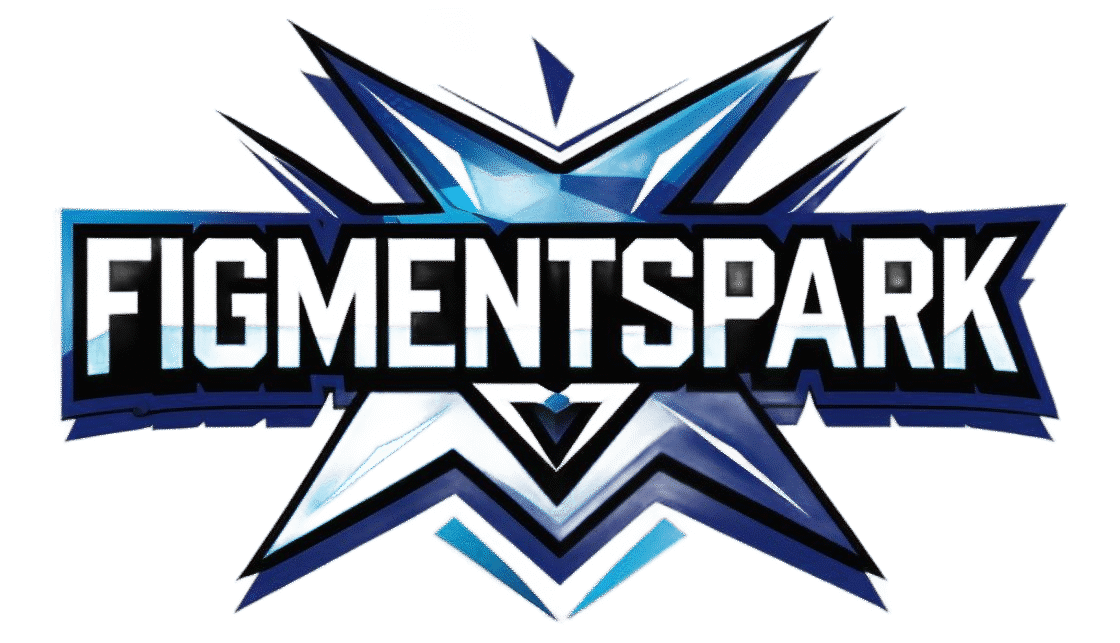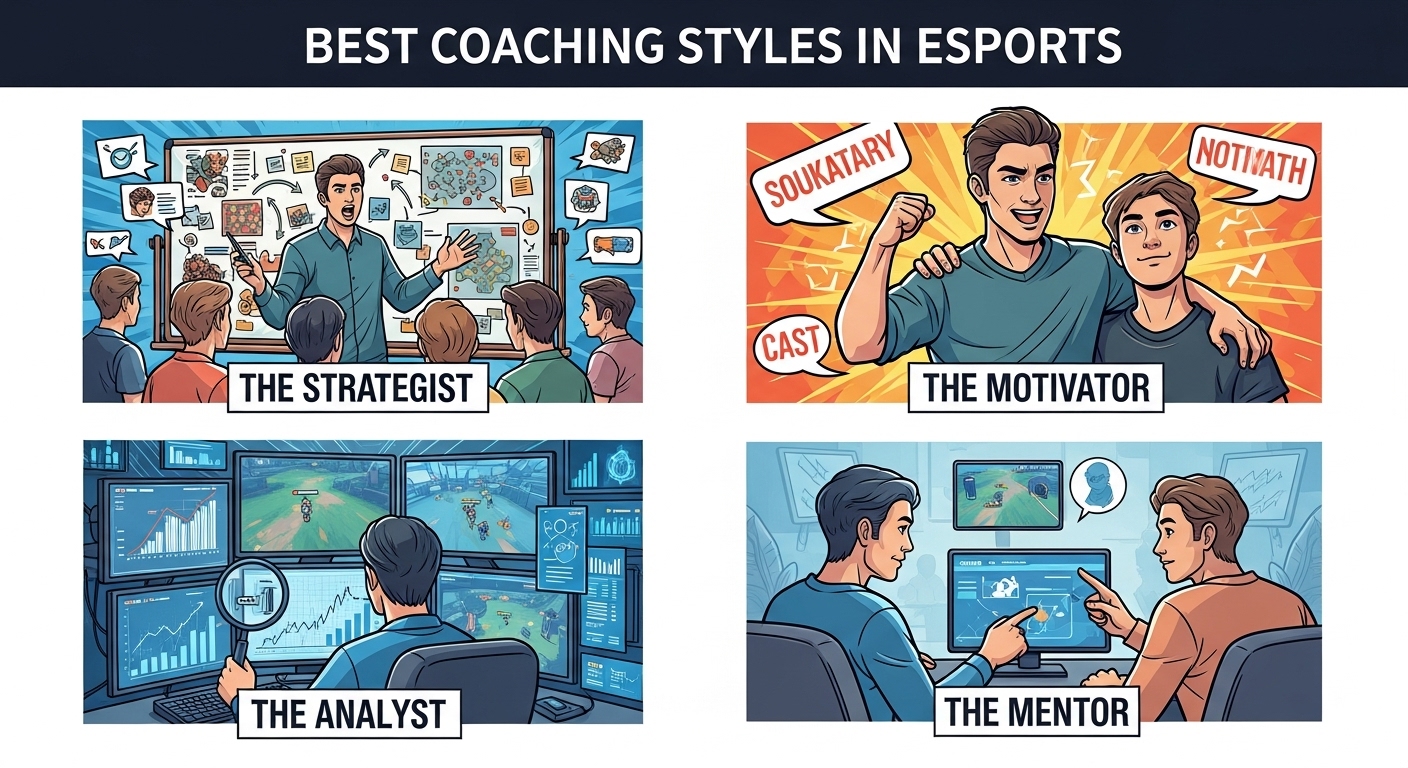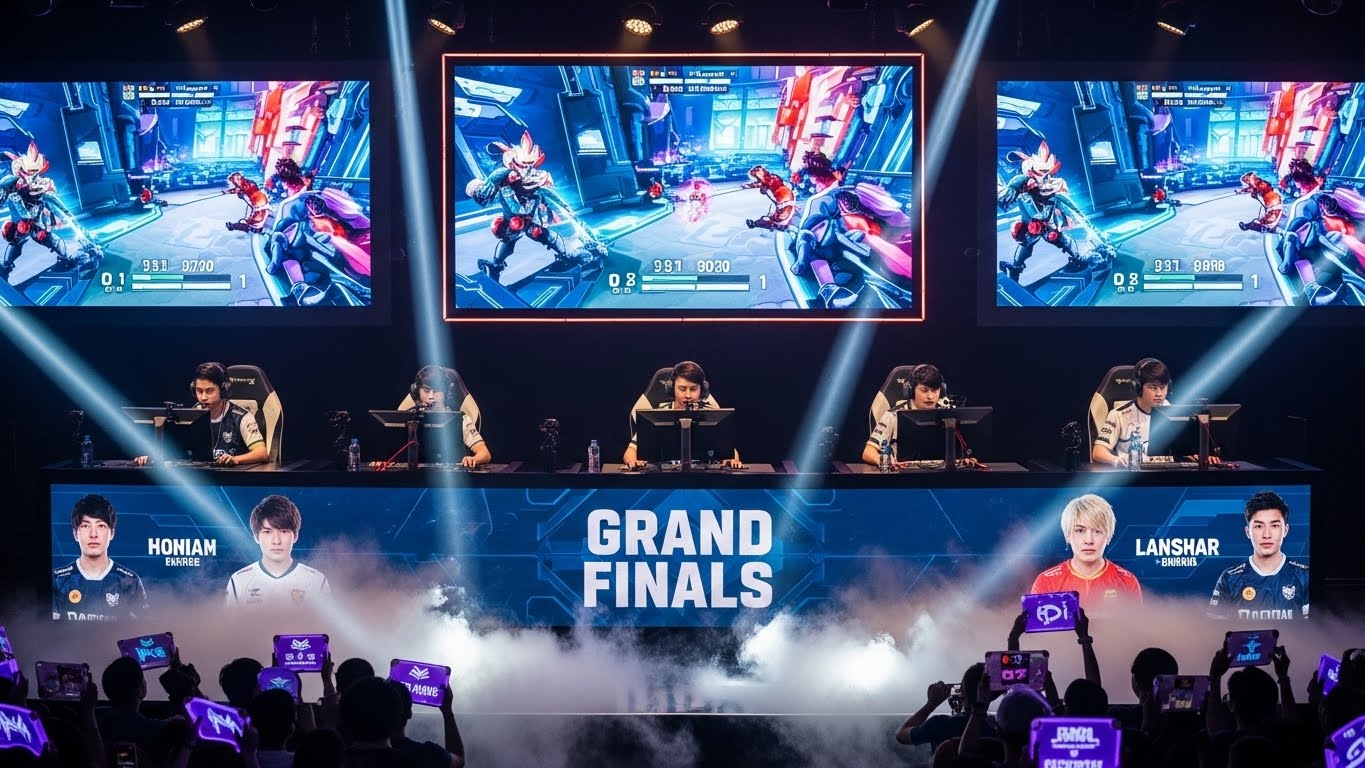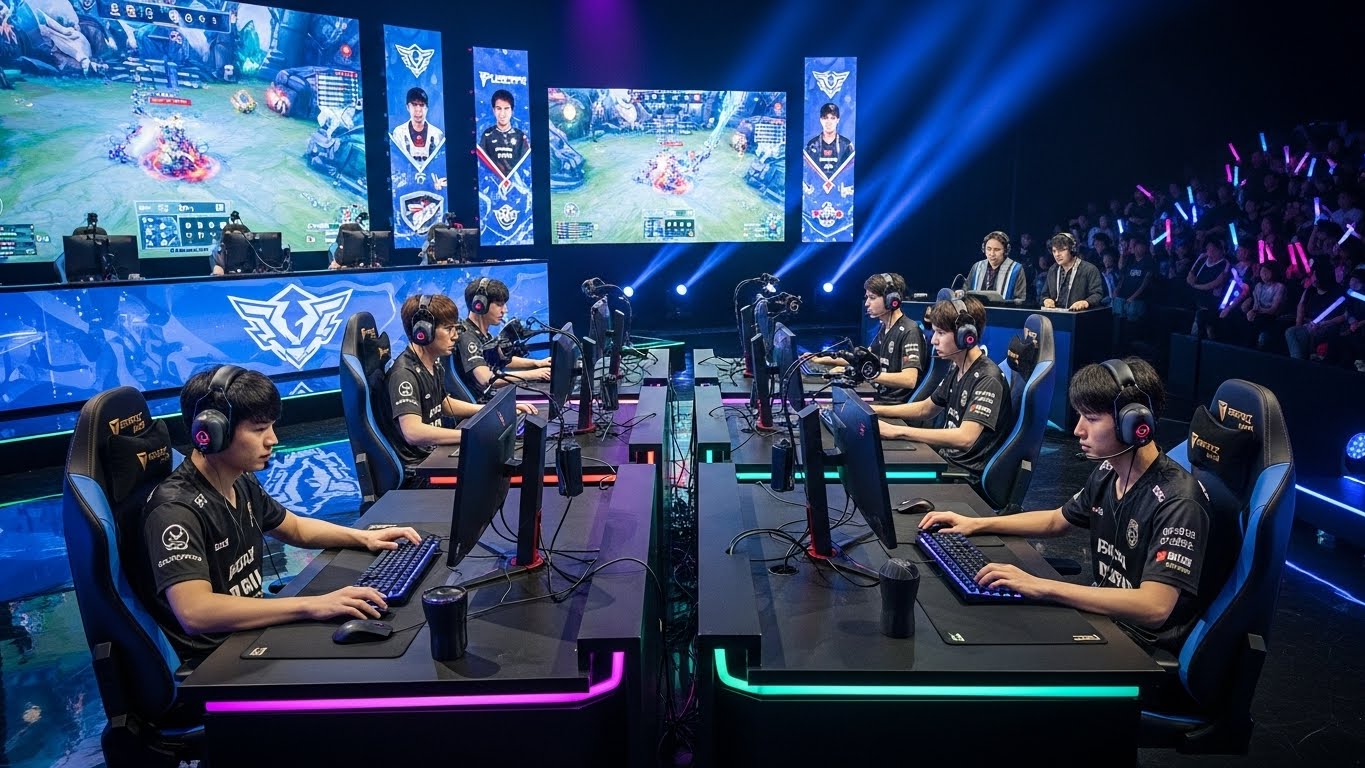Esports has grown far beyond competitive gaming. What started as niche tournaments streamed to small online communities has transformed into a global phenomenon influencing entertainment, fashion, music, and more. Today, esports doesn’t exist in isolation—it interacts with broader pop culture in ways that amplify its reach and impact. From celebrity endorsements and TV appearances to music collaborations and blockbuster films, esports has become a cultural force, bridging digital competition with mainstream entertainment.
In this blog, we’ll explore the best esports crossovers in pop culture, highlighting the moments where gaming, celebrity, and media intersected to create unforgettable experiences.
The Rise of Esports in Mainstream Culture
Before diving into specific crossovers, it’s important to understand why esports has become attractive to pop culture. Esports appeals to millions of young, tech-savvy fans who consume content across multiple platforms. Streaming services, social media, and global tournaments make esports inherently shareable, providing fertile ground for collaborations with other industries.
Brands, celebrities, and media creators recognize the marketing potential of esports, leading to partnerships that extend gaming beyond monitors and arenas. These crossovers not only enhance visibility but also validate esports as a legitimate entertainment medium.
Celebrity Endorsements and Appearances
One of the most notable intersections between esports and pop culture is through celebrity involvement. Famous personalities often appear at tournaments, collaborate with players, or even invest in esports teams.
1. Drake and Ninja
In 2018, rapper Drake played Fortnite live on Twitch with popular streamer Ninja. This unprecedented event brought millions of viewers, including people who had never watched gaming content before. The crossover highlighted the potential for celebrities to drive mainstream awareness and created a blueprint for future collaborations between music and esports.
2. Logic in League of Legends
Rapper Logic partnered with the League of Legends esports community for charity streaming events. His participation not only boosted viewership but also connected the music industry with esports fans, fostering mutual respect and shared culture.
These events demonstrate how celebrity appearances can generate massive buzz and help normalize esports in popular culture.
Fashion and Lifestyle Collaborations
Esports has also influenced fashion trends. Top gaming teams, such as FaZe Clan and 100 Thieves, have partnered with streetwear brands and luxury labels to release exclusive collections.
1. FaZe Clan x Champion
FaZe Clan, originally known for competitive Call of Duty, collaborated with streetwear brand Champion to produce limited-edition apparel. These collections blend gaming aesthetics with urban fashion, allowing fans to wear esports culture in their daily lives.
2. 100 Thieves x Nike
100 Thieves, both an esports organization and lifestyle brand, partnered with Nike to release sneaker lines and clothing that combine performance and style. Such collaborations illustrate how esports branding can extend beyond gaming hardware and merchandise into mainstream fashion markets.
These crossovers show that esports isn’t just about playing games—it’s about identity, self-expression, and community.
Music Collaborations and Concerts
Esports tournaments often feature musical performances, creating synergy between live gaming and entertainment. Concerts, soundtracks, and in-game music collaborations help cement esports as a cultural experience.
1. Marshmello in Fortnite
While not strictly esports, Marshmello’s in-game concert in Fortnite drew millions of viewers worldwide. The virtual performance demonstrated the potential of gaming spaces to host entertainment events, influencing esports tournaments to incorporate musical elements into opening ceremonies and intermissions.
2. Travis Scott and League of Legends
Travis Scott collaborated with League of Legends for themed music content and virtual events. Such crossovers blur the lines between music, gaming, and esports, showcasing how integrated pop culture experiences can become.
Film and Television References
Esports has increasingly appeared in movies, TV shows, and documentaries, often portraying professional gaming as a legitimate pursuit.
1. Free Guy and Esports Culture
The film Free Guy (2021), starring Ryan Reynolds, incorporated elements of gaming and esports culture, showcasing competitive gameplay and streaming phenomena. The movie exposed esports concepts to a mainstream audience and highlighted the entertainment value of competitive gaming.
2. The King of Kong and Documentaries
Documentaries such as The King of Kong: A Fistful of Quarters and series like Level Up explore competitive gaming history, rivalries, and culture. While focusing on arcade and console competitions, these works laid the groundwork for appreciating esports as a global phenomenon.
These crossovers help normalize esports and foster a sense of legitimacy in mainstream media.
Brand Partnerships and Product Tie-Ins
Brands have realized the marketing power of esports audiences, leading to collaborations that intersect gaming with consumer products.
1. Coca-Cola and League of Legends
Coca-Cola sponsored major League of Legends tournaments, creating custom marketing campaigns and limited-edition merchandise tied to the esports world. These collaborations emphasize brand visibility while celebrating esports culture.
2. Red Bull and Esports Athletes
Red Bull supports competitive gaming through team sponsorships, events, and media campaigns. By associating its brand with esports energy and performance, Red Bull strengthens its cultural relevance among younger audiences.
Brand partnerships like these underscore the value of esports as a marketing platform that bridges competitive gaming and lifestyle branding.
Crossover with Traditional Sports
Esports has increasingly intersected with traditional sports, creating hybrid experiences and collaborations.
1. NBA 2K League
The NBA 2K League, an official esports league run by the NBA, combines basketball with competitive gaming. Professional athletes and esports players interact, bridging fan bases and blending traditional sports culture with gaming.
2. Formula 1 Esports Series
The F1 Esports Series merges motorsport with competitive gaming, offering fans interactive experiences and bringing traditional racing audiences into the esports fold.
Such initiatives show that esports isn’t a competitor to traditional sports—it’s an extension, allowing new forms of engagement and fandom.
Social Media and Viral Crossovers
Social media amplifies esports’ influence in pop culture. Viral moments, memes, and highlights often cross over to mainstream platforms like TikTok, Instagram, and YouTube, reaching audiences who may not follow esports regularly.
1. Meme Culture in Fortnite and Valorant
Gameplay clips, funny moments, and player reactions frequently go viral, shaping internet culture and introducing esports content to broader communities.
2. Influencer Collaborations
Esports personalities often collaborate with mainstream influencers for joint content creation, expanding the reach of gaming culture into lifestyle, comedy, and entertainment content.
This social media presence strengthens the connection between esports and general pop culture.
Video Game Crossovers
Interestingly, esports games themselves have become cultural icons through collaborations with other media.
1. Fortnite Collaborations
Fortnite has partnered with Marvel, Star Wars, and popular artists to bring crossover skins, events, and storylines. While these are in-game, they influence esports competitions by shaping meta, viewership, and fan engagement.
2. League of Legends Collaborations
Riot Games has partnered with artists, musicians, and brands to produce in-game skins, music videos, and lore-based events. These collaborations extend esports narratives into wider entertainment contexts.
These crossovers emphasize how games act as cultural hubs, blending competition with storytelling, music, and fashion.
The Impact of Esports Crossovers on Pop Culture
Esports crossovers are more than marketing—they’re cultural validation. By appearing alongside celebrities, brands, and mainstream media, esports demonstrates its relevance beyond niche gaming communities.
Fans benefit from enriched experiences, such as concerts, limited-edition merchandise, and interactive events. Meanwhile, pop culture gains a fresh audience that values innovation, competition, and creativity.
The crossovers also help break stereotypes. Esports is often misunderstood as merely casual gaming, but collaborations with global brands, artists, and celebrities highlight its professionalism, entertainment value, and community impact.
Future of Esports Crossovers
The intersection of esports and pop culture will only grow deeper. Emerging trends include:
- Virtual Reality Experiences: VR esports tournaments could merge gaming with immersive concerts and live events.
- Expanded Music Collaborations: More artists will integrate their work into games and tournaments.
- Fashion and Lifestyle Brands: Greater partnerships with high-end fashion houses, beyond streetwear.
- Film and Streaming Media: More movies, series, and documentaries featuring esports storylines and personalities.
These developments will ensure that esports continues shaping and reflecting broader cultural trends.
Conclusion
Esports has transcended gaming to become a central element of modern pop culture. Its crossovers with music, fashion, celebrities, film, traditional sports, and social media demonstrate its influence and staying power. Each collaboration strengthens the bridge between competitive gaming and mainstream entertainment, enriching experiences for fans and validating esports as a global cultural force.
From Drake playing Fortnite with Ninja to League of Legends’ musical collaborations, these moments remind us that esports is not just about games—it’s about culture, creativity, and connection. As esports continues to evolve, its presence in pop culture will grow stronger, shaping entertainment and lifestyle for generations to come.



